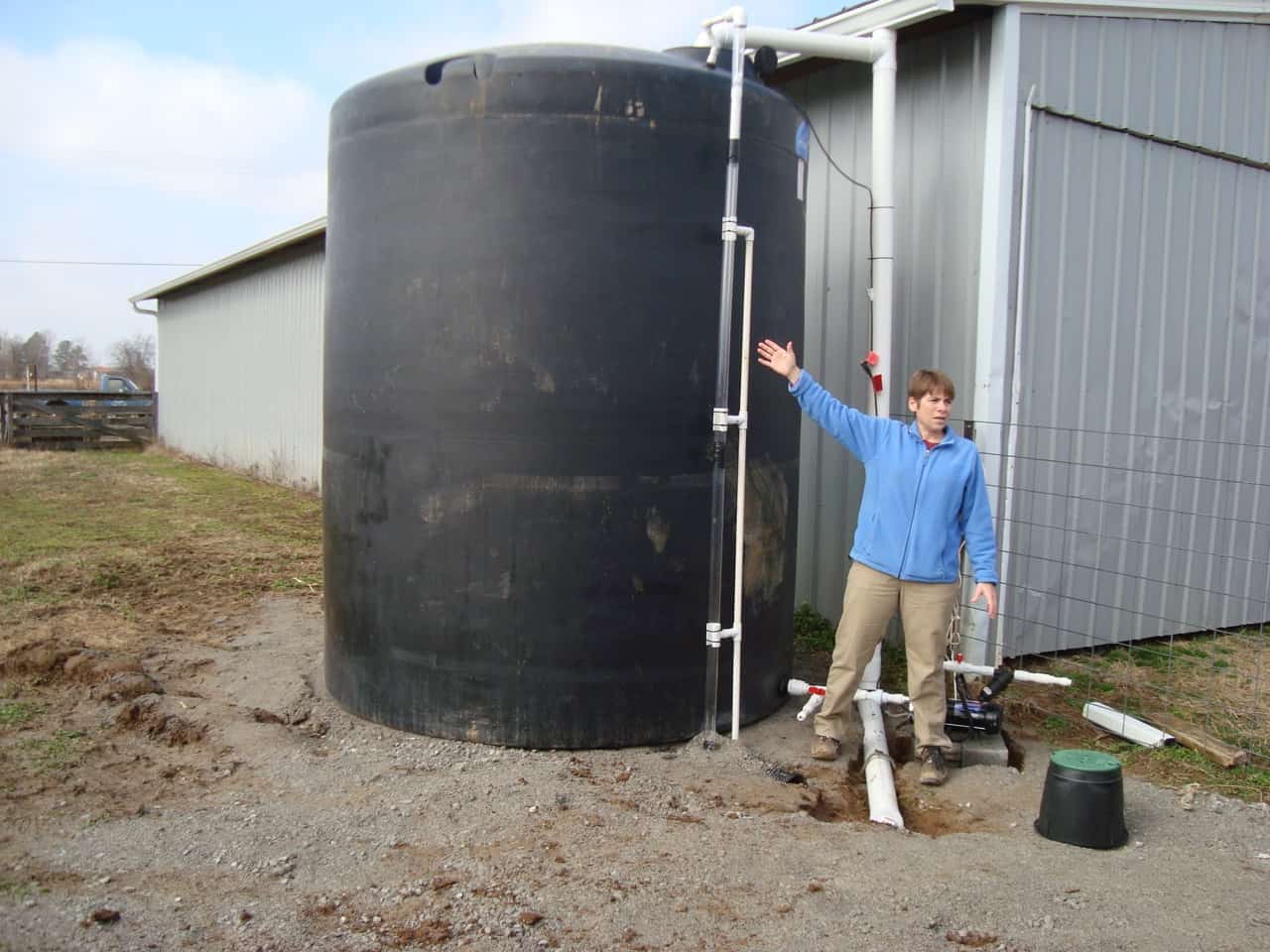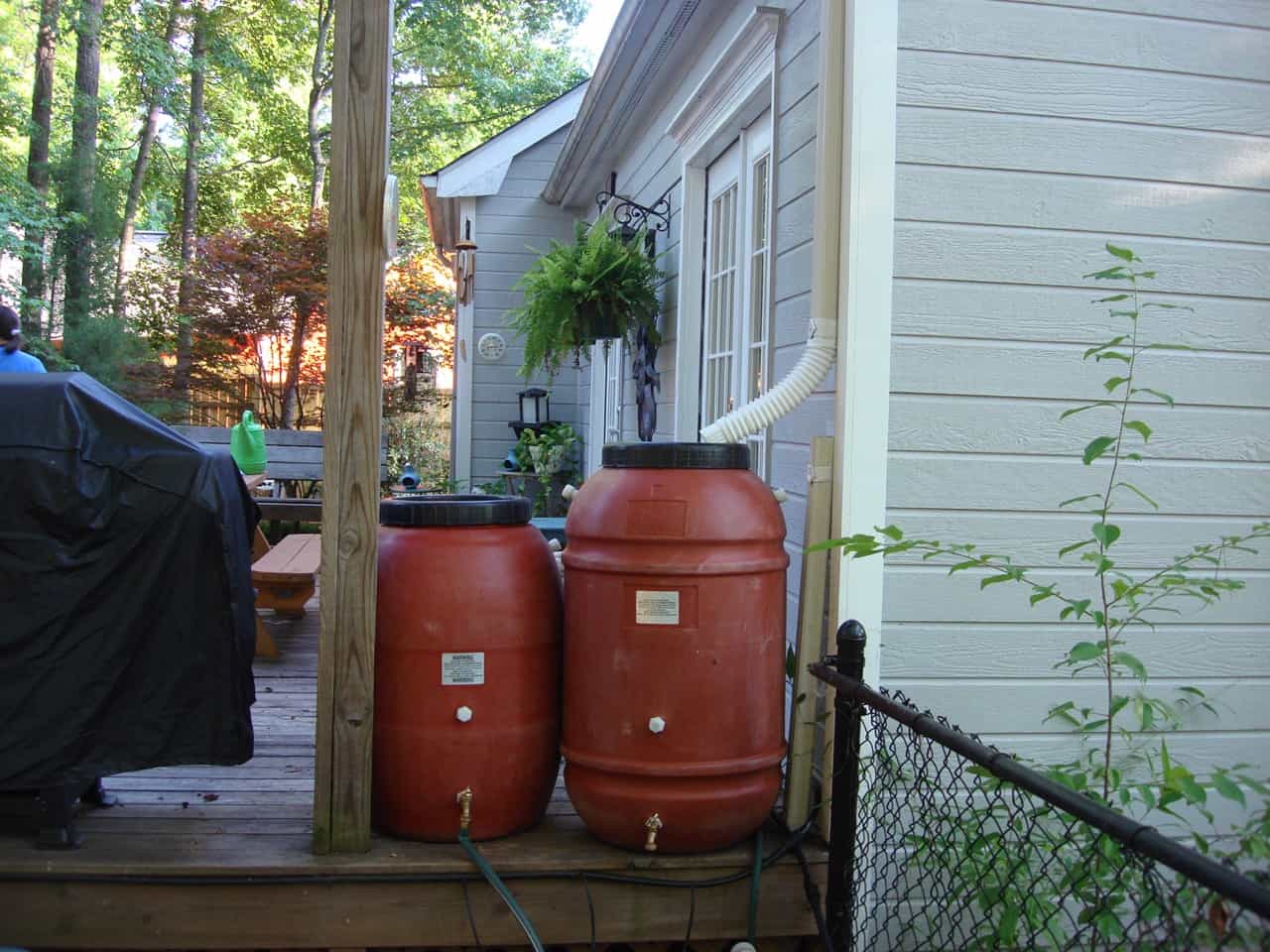


3/9/2016
With over 77,000 rivers and streams and an average rainfall of 55 inches per year, Alabama is a state blessed with natural water resources. Catching and reusing water is an ancient technology that has current value to save energy, money and conserve an important natural resource.

A large rain barrel, for farm use.
If interested in collecting rainwater, first you must decide if you want to collect on a small or large scale. For personal collection, you can use something as simple as a rain barrel. Wood, metal, or plastic are all good containers for rainwater collection, as long as they do not have residues of harmful chemicals. It is wise to use a dark container, or paint the container dark to discourage algae growth. The container used for collecting should be covered, with a screen protection at the opening to keep mosquitos out and minimize leaves or other materials from entering. For larger scale collection, cistern systems are recommended. In 2010, Birmingham-Southern College installed a 15,000 gallon cistern that captures rainwater off of the roof and uses it for landscape irrigation. According to bsc.edu this practice is saving 50,000 gallons of water per year.
The Alabama Cooperative Extension System hosts residential rain barrel workshops each year to demonstrate construction, placement and uses of rainwater harvesting systems. Harvested rainwater can be used for household chores like watering lawns/gardens, irrigation in the yard, flushing toilets, and washing cars. Be sure to check with local plumbing codes and ordinances if you are interested in using rainwater inside your home.

Small scale rain barrels.
Collecting rainwater saves money and energy. The collector will save money by using the free resource instead of treated water. “Why not take advantage of what’s free and falling from the sky,” said Alabama Extension specialist Dr. Eve Brantley. “Collect it and hold it until you need to use it rather than constantly using water that has been treated. It saves energy, it saves money, and it’s a good use of water resources,” she said. Although Alabama has plentiful water resources droughts occur about every 12 years. It is smart to practices water collection and conservation so it becomes a habit. It is anticipated that climate variability will result in more frequent and/or more extreme droughts. It is smart to practice water collection and conservation so it becomes a habit.Don’t hesitate to start collecting rainwater now.
You can read into how to collect rainwater at aces.edu or contact your local Alabama Cooperative Extension agent. If you are a homeowner interested in an attractive, low-maintenance, and sustainable home landscape check out the Alabama Smart Yards app on your mobile phone.
Article published on Extension Daily at http://news.aces.edu/blog/2016/05/09/benefits-of-collecting-rainwater/